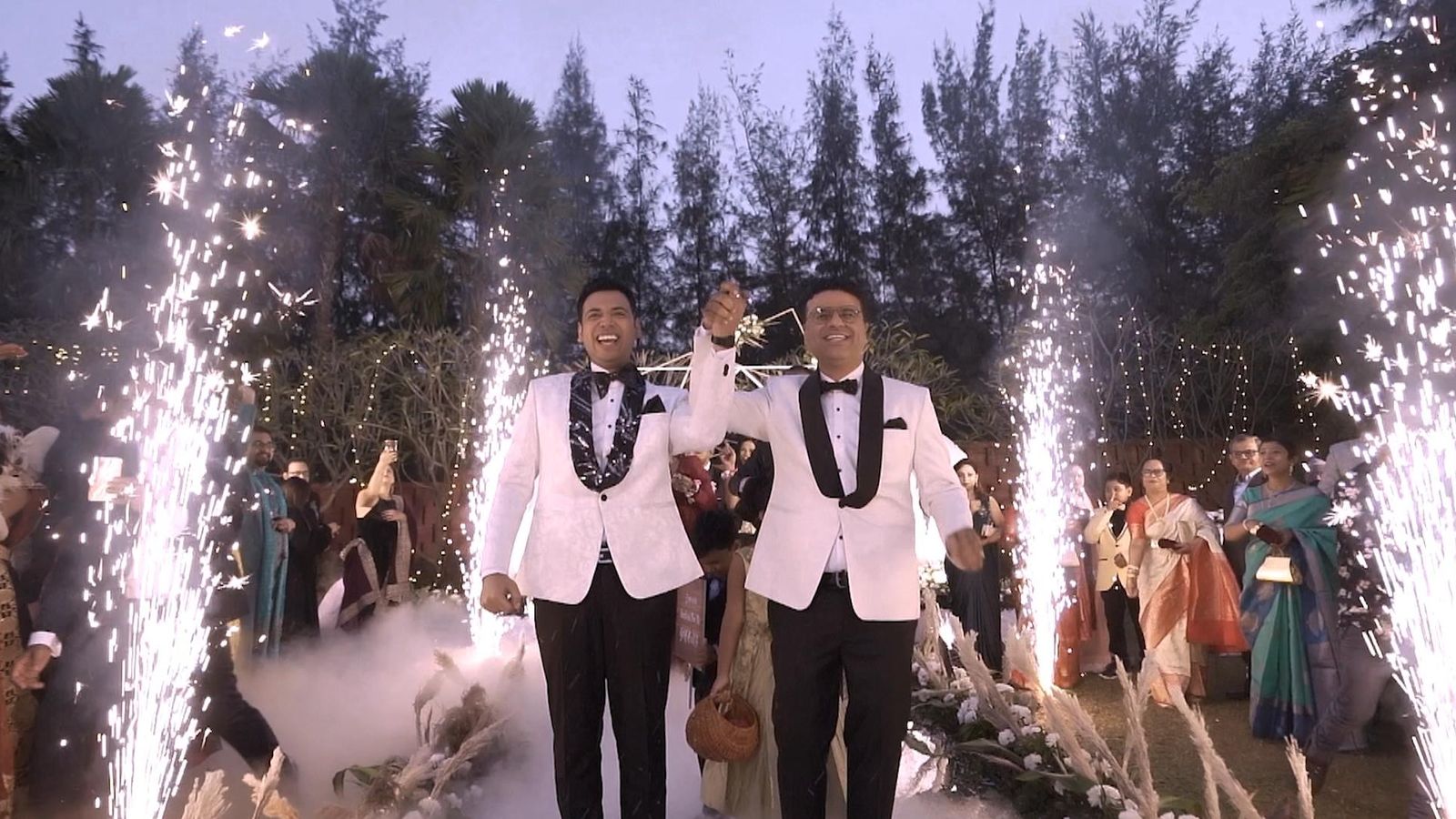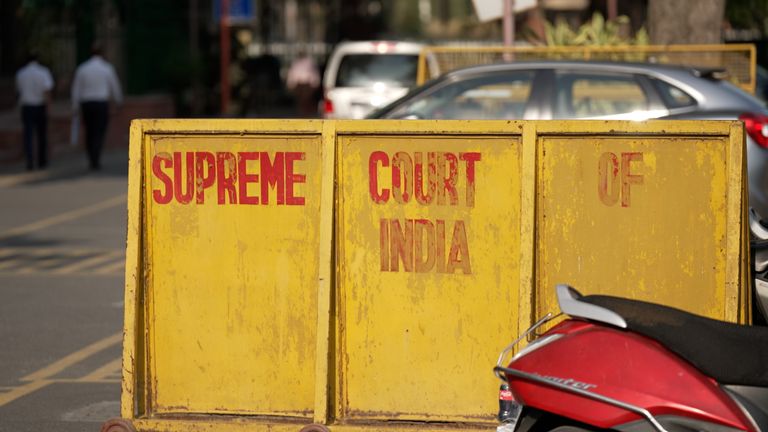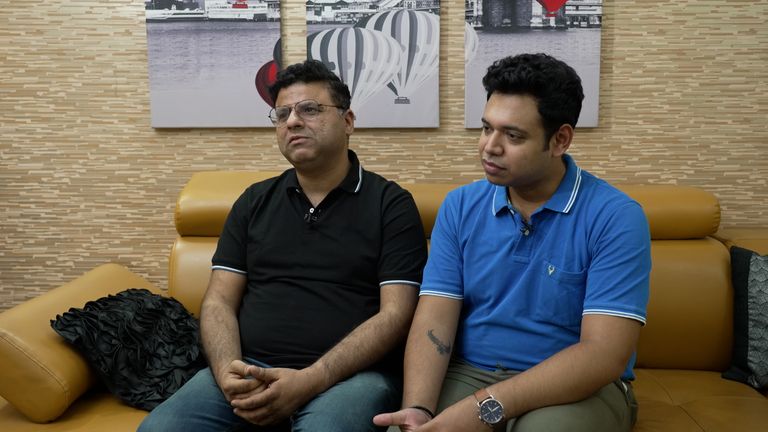India could soon become only the second nation in Asia to legalise gay marriage.
As the world’s fast-growing democracy, it is a hugely significant moment for LGBTQI+ campaigners.
Abhay Dange and Supriyo Chakraborty are one of 18 Indian couples leading the fight at the Supreme Court.
Abhay says culturally, the ability to marry is critical: “In this country, India, marriage is a very important thing. You know, we actually call it a marriage country because it’s not just an option. It’s a part of a life cycle.”
Surpiyo says it’s also about security: “There are LGBTQ people who fear for their lives because of family pressure. And I think all of those people as well, if same sex marriage becomes recognised, then they will have that legal protection.”
In the city of Pune, campaigners took to the streets for a rally get their voices heard. So many we spoke to talked about the desperate need for what they called “basic human rights”, such as adoption and the ability to buy a property together.
There was some surprise in legal and political circles that the petitioners managed to get their case heard in the Supreme Court in the first place.
In a plea submission by the Solicitor General to the Supreme Court, the BJP-led government tried to quash a batch of petitions, calling same-sex marriage an “urban elitist concept far removed from social ethos of the country”.
It also insists parliament is the institution that should be able to decide, not the court and that change would wreak havoc with “a virtual judicial rewriting of an entire branch of law”.
One hurdle that could prove very challenging for the petitioners, is the host of personal laws that may be affected by a change. India is a deeply religious country and the laws reflect that.
Dr Surendra Jain, General Secretary of the influential Hindu nationalist group Vishwa Hindu Parishad told me: “I think India is not the right place to allow gay marriages. There are lots of cultural, social and legal problems.
“Marriages are being governed by personal laws in India. Muslim personal law and Hindu law. Both laws do not permit marriage between same sex persons.”
The complications of unpicking more than 30 personal laws could prove lengthy, complicated and intensely divisive, especially given the government’s stance.
Read more:
Protests rock Indian parliament after ethnic violence in Manipur
India launches space mission to far side of the moon
And yet, India is believed to be home to the world’s largest LGBTQ+ community, according to Indian and international activists who use the globally recognised Kinsey scale to estimate that it numbers around 135 million people.
That’s around 10% of India’s population – though opponents of gay marriage refute these statistics.
Some activists I met told me they did feel India has come a long way in creating safer spaces for gay people, especially in big cities like Delhi and Mumbai.
But it is only a little over five years since India decriminalised homosexuality and it remains a largely conservative nation. Many told me in the vast rural areas, far fewer people feel accepted or protected.
The oral arguments in the Supreme Court were completed on 11 May. The court could issue its ruling at any time.


